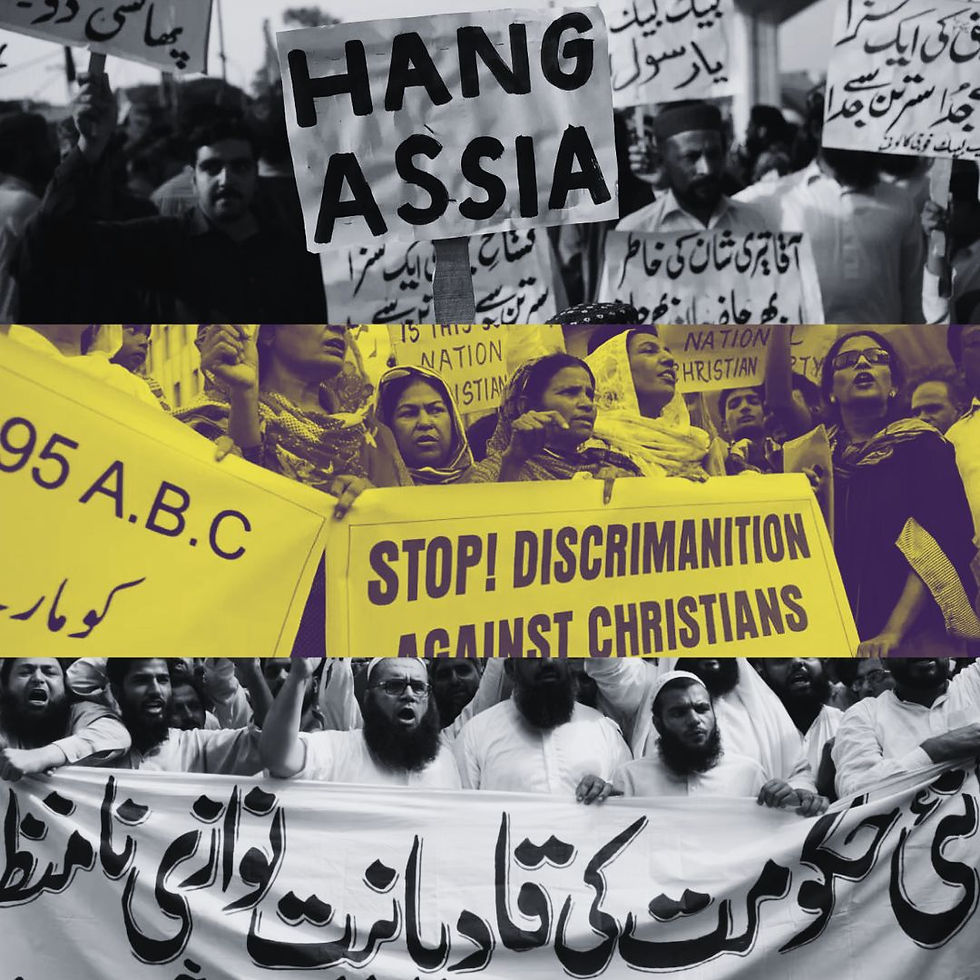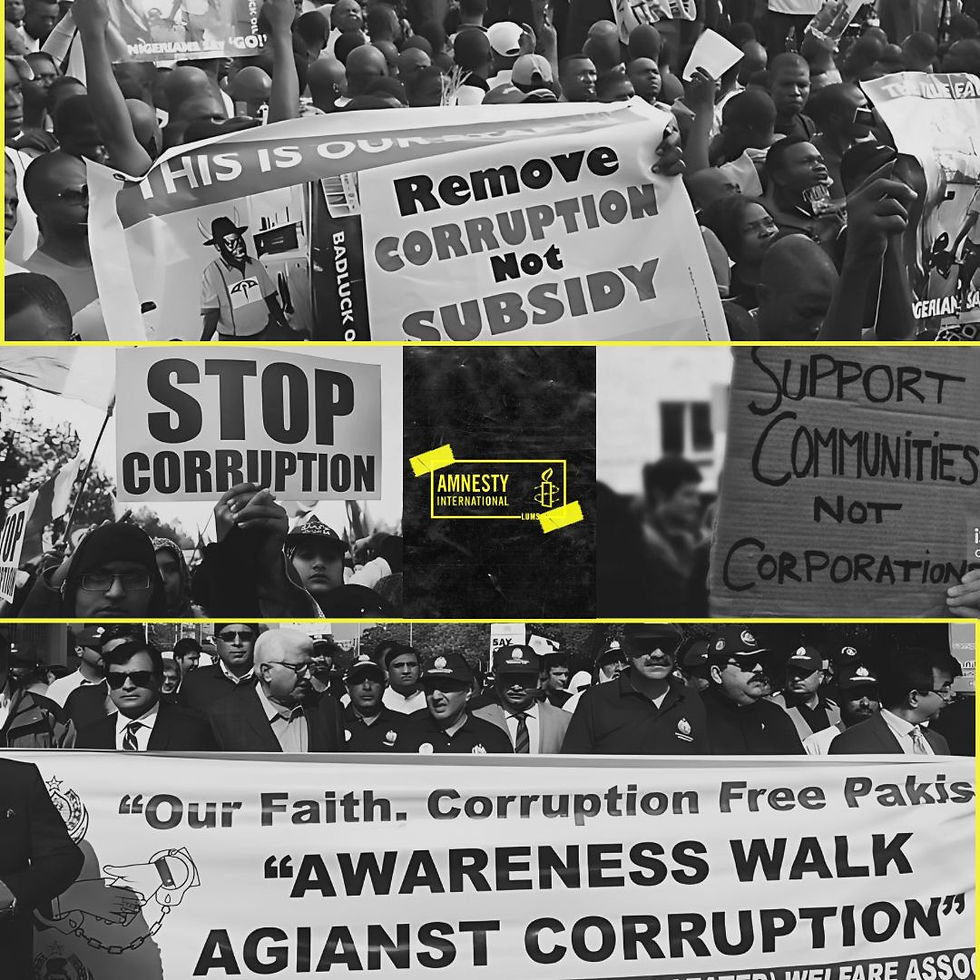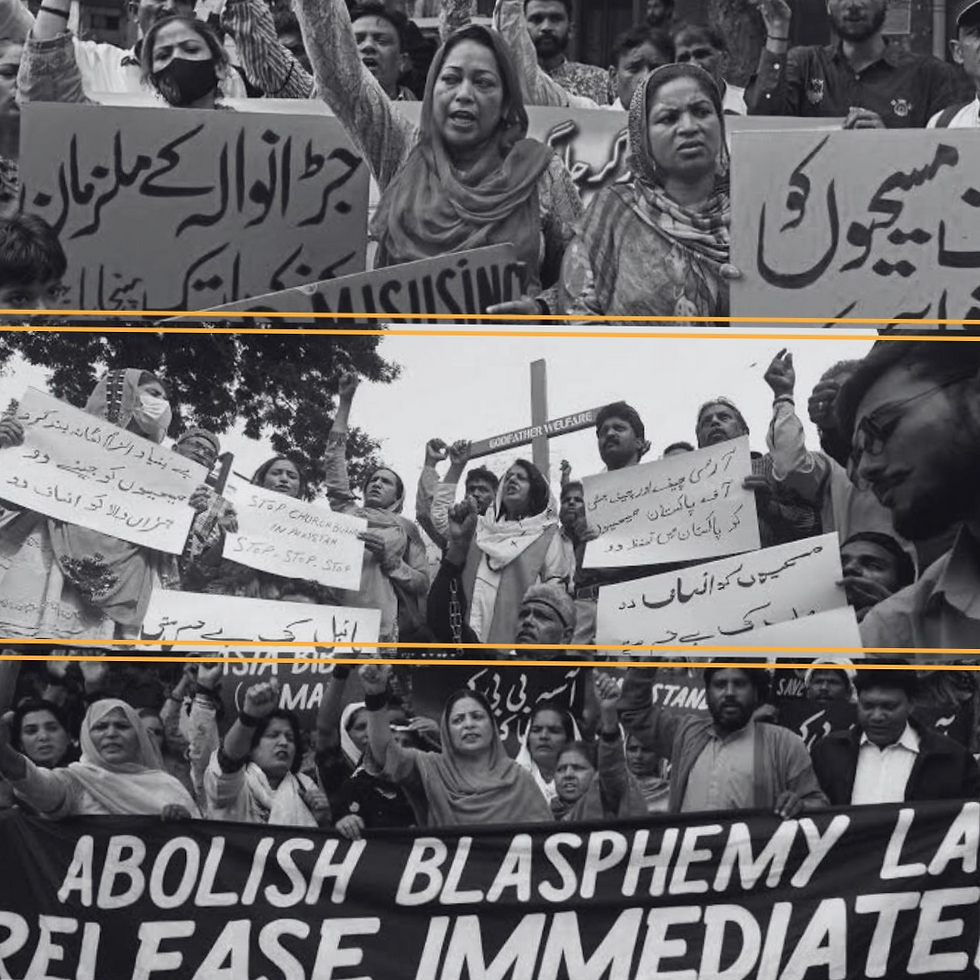Forgotten Citizens: The Struggles of Religious Minorities in Pakistan
- Aiman Memon
- Aug 18, 2024
- 2 min read
By Aiman Memon

Distinct notions of politics, citizenship, and national identity have become entrenched in the formation of the Pakistani nation-state. Although the state was vaguely defined as “Muslim” rather than a strict theocracy, as stated by Liaquat A. Khan, later government policies, fear-driven politics, and the Cold War during General Zia’s regime worsened existing inequalities and religious tolerance.
Historical Context
In the post-colonial era, Pakistan’s leaders faced the challenge of defining Islam’s role in the state. Though the largely secular elite did not push for a theocracy, they distanced Pakistan from the secularism of British rule, leading to a gradual desecularization of the nation’s moral and legal framework.
The 1949 Objectives Resolution, which vested sovereignty in God, set the foundation for an Islamic state. Subsequent measures, like constitutional amendments excluding Ahmadis from being recognized as Muslims, further solidified Muslim majoritarianism. Efforts to bring religious minorities to an equal footing were largely rejected, reflecting the political motivations of a vocal minority that sought to shape national identity around Islam.
Prime Minister Zulfikar Ali Bhutto’s declaration of Islam as the state religion in the 1973 Constitution and General Zia-ul-Haq’s empowerment of religious actors in the 1980s marginalized religious minorities further. Zia’s policies, driven by Cold War politics, entrenched a “politics of expediency” and sidelined minority communities.
Systemic Discrimination and Legal Challenges
Religious minorities in Pakistan face severe legal challenges, particularly due to the blasphemy laws, which date back to British colonial rule but have become a potent tool for persecution in modern times. The case of Asia Bibi, a Christian woman sentenced to death for blasphemy and later acquitted by the Supreme Court in 2018, drew global attention to the misuse of these laws.
Other prominent figures who opposed the blasphemy laws, like Punjab Governor Salman Taseer and Federal Minister Shahbaz Bhatti, were assassinated, with their killers celebrated as heroes by extremist groups.
Critics of the blasphemy laws are often branded as "anti-state" or "Western agents," reinforcing a binary narrative of "us versus them" that pits Islamic values against perceived Western threats. This rhetoric, shaped by religious leaders, pressures democratic institutions to capitulate to demands that further institutionalize religious intolerance.
Furthermore, the forced conversion of minority women, particularly Hindus and Christians. These women are often abducted, forcibly converted to Islam, and married off.
Efforts and Opportunities for Improvement
Civil society organizations within Pakistan, as well as international human rights groups, continue to advocate for the rights of religious minorities. For example, the National Commission for Justice and Peace (NCJP), a Catholic organization, has been at the forefront of legal advocacy for minority rights, particularly in cases involving blasphemy accusations. Interfaith dialogue initiatives have also shown promise in fostering mutual understanding and reducing tensions. Additionally, educational reforms that include teachings on religious tolerance and the contributions of minorities to Pakistan’s history could play a crucial role in changing societal attitudes.





Comments